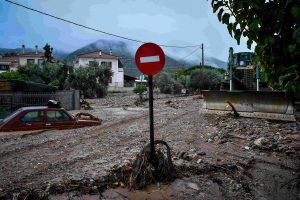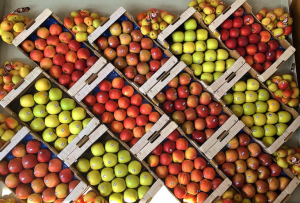Prime Minister Kyriakos Mitsotakis is holding consecutive meetings today at the Maximos Mansion to address pressing issues in the agricultural region of Thessaly, located in central Greece.
The morning session will be attended by local government officials, including Thessaly’s Regional Governor Dimitris Kouretas, along with mayors and agricultural groups, and will be followed by a delegation from the rural community later in the day.
Farmers are set to present the Prime Minister with a list of concerns, ranging from compensation and restoration efforts to urgent flood defenses. The situation in flood-prone areas like the Lake Karla, is a key concern that has even been highlighted by the region’s New Democracy members.
The agricultural community is demanding swift action on income reimbursement, the reduction of production costs, matters related to Greece’s Common Agricultural Policy (CAP), and restoration projects.
Rizos Maroudas, president of the Federation of Agricultural Associations of Larissa, stressed the urgency of the situation, stating, “We expect answers, we expect timelines, we expect requests to be met. We’re sending a message of revolt, a message of resistance.”
Thessaly has been pressuring the government since September 2023. Delays and errors have heightened despair among the affected, prompting the government to ramp up efforts to address grievances.
The government is now focusing on a “persuasion” campaign to reassure the affected, promising to fulfill existing commitments and advocating for improvements to the CAP in Brussels. PM Mitsotakis will convey this message to Thessaly representatives during the meetings.
The CAP is a framework for ensuring the future of agriculture and forestry in the European Union (EU) and is aligned with the European Green Deal.
It came into force at the start of 2023, covers the 2023-2027 period, and is supposed to support the transition to sustainable agriculture and forestry in the EU meanwhile supporting the block’s climate ambitions.
However, farmers across the EU have been protesting the measures saying that the costs of transitioning to more sustainable farming measures are too great, particularly considering that farmers are on the front-line of the impact of climate change.
The past year was marked by inclement weather, record high temperatures, floods and fires in Europe, which caused tremendous damage to crops, and in some cases, has driven up the cost of foods on supermarket shelves.






